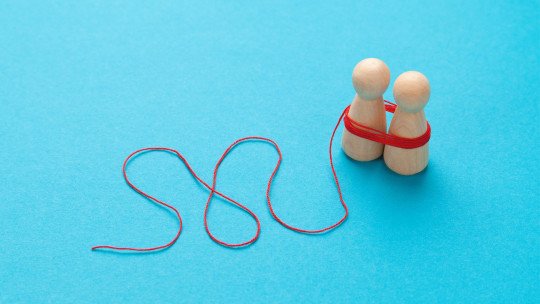Do you think you can have an emotionally dependent relationship in a friendship? How can we identify that we are beginning to depend emotionally on someone? Discover the signs.
Not all friendships are healthy. In fact, a common characteristic of toxic or unhealthy friendships is codependency. So how can we Identify emotional dependence in a friendship And what can we do to improve this emotional bond?
What is emotional dependence in a friendship?
Although having close friends is important, when a emotional link with a friend is codependency, that is, when you begin to depend emotionally on someone where the limits have completely vanished. Boundaries are essential for any relationship, be it friendship, love or family.
In this way, when there is a emotional dependence in friendship, the people in the relationship end up sharing opinions, needs, relevant decisions and even feelings. Although it is healthy to have emotional support from your friends, when it becomes a dependency, it is a negative behavior for both parties in the relationship.
Normally, when begins to depend emotionally on someone especially in a friendship, there is often an unbalanced power dynamic, that is, there is always one person who gives more and another who always receives.
How do I know if I have an emotional dependency in a friendship?
Within a friendship relationship, if the emotional bond that exists is one of dependency there are a series of signs that can help us identify these unhealthy attitudes.
- Always requires your support: It is normal and healthy for people to need the support of their friends when they are experiencing a difficult situation. But when the support of a friend is constantly required, it is probably a sign that we are facing a unhealthy friendship since there is a codependency.
- There is mental exhaustion: When in a friendship one of the two parties always ‘gives’ more to the other, there is usually a certain emotional exhaustion. This happens because people who usually have tendency towards emotional codependency They like to feel needed or ‘good people’ within a relationship.
- Putting a friend’s needs before your own: This is one of the most obvious signs that a friendship relationship is codependent. When emotionally dependent on someone, limits of emotional bond They end up blurring, which means that a person’s needs are cancelled.
- Emotions, feelings and/or opinions are shared: The toxic friendships with codependency They usually share many of the opinions, emotions and even feelings. That is, although it may seem like extreme empathy, when this seems to be dictated by the other person, it can be a sign of emotional codependency.
- Difficulty expressing yourself: Friendships with a emotional link dependent may experience many difficulties in being able to express their own needs, choices or opinions, especially if these are different from the other person. In this way, when there is emotional dependence in a friendship, one of the parties may even feel guilty about it.
- Jealousy exists: Friends with codependency may feel jealous when someone approaches the person in question. This happens because friendships with emotional dependence They may believe that the bond may be threatened by another person.
These are some of the signs that could indicate that we are facing a emotional dependence in a friendship If you consider that this may be your case, it is important that you take some steps to change this emotional bond.
What to do if you start to depend emotionally on someone?
When faced with a codependent friendship relationship, you can follow the following advice:
- Find out how the dependency arose: If you have begun to realize that you have a toxic friendship relationship, the first step is to see where the problem arises from. In many cases, this type of behavior tends to be a deep-rooted habit from our childhood, that is, it may have its roots in the family dynamics we had.
- Start putting yourself first: Setting limits is an attitude that requires practice. Therefore, perhaps to start having a healthier friendship It is relevant to identify our own needs and desires and communicate them to the person, as well as prioritize them.
- Get ready for a major change: Although you have realized that you emotional link with the person is not completely ‘healthy’, perhaps the other party does not have the same impression. In these cases, friendships like these may not be sustainable if both individuals are not committed to understanding each other’s needs and limits.
- Learn to take care of yourself: A healthy friendship does not require that a person be constantly solving other people’s problems. Rather depend too much on a friend you can practice boundaries by taking on more responsibility for your needs.
Unlike the friendships that are codependent, healthy ones usually have strong and established boundaries. In this way, each person is aware of their needs and desires, that is, they are free to live their own life without fear of what their loved ones will say or do. In the event that you cannot solve this type of emotional bond dependent on others on your own, it is advisable to have the help of a mental health professional.
By citing this article, you acknowledge the original source and allow readers to access the full content.
PsychologyFor. (2024). 6 Signs of Emotional Dependence in Friendship: How to Deal with It?. https://psychologyfor.com/6-signs-of-emotional-dependence-in-friendship-how-to-deal-with-it/











